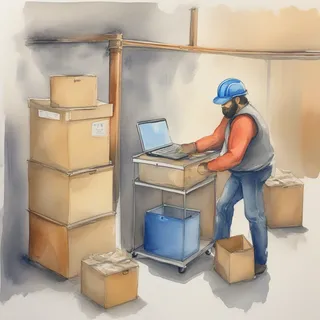Keeping your development environment current shouldn't require daily manual intervention. If you're running WSL for your development work, you want those packages fresh without the cognitive overhead of remembering to update them.
Let's automate WSL package updates so your Ubuntu (or other distro) stays current while you focus on actual work. This approach works whether you want updates at startup, on a schedule, or both.
Why automate WSL updates
Consistency: Your development environment stays predictable and secure without manual intervention.
Time savings: No more remembering to run apt update && apt upgrade every few days.
Security: Critical patches get applied automatically, reducing your exposure window.
Developer flow: One less administrative task interrupting your actual work.
The basic automation script
Here's the core script that handles updating your default WSL instance:
wsl -u root -e apt update
wsl -u root -e apt upgrade -y
What's happening:
wsl -u rootruns the command as root (required for package management)-e apt updaterefreshes the package list from repositories-e apt upgrade -yinstalls available updates with automatic "yes" confirmation
This works for Ubuntu and most Debian-based distributions. For other distros, adjust the package manager commands accordingly.
Enhanced script with error handling
For production use, you'll want better error handling and logging:
# WSL-Update.ps1
$logPath = "$env:USERPROFILE\WSL-Update.log"
$timestamp = Get-Date -Format "yyyy-MM-dd HH:mm:ss"
Write-Host "[$timestamp] Starting WSL update process..."
Add-Content -Path $logPath -Value "[$timestamp] Starting WSL update process"
try {
# Check if WSL is available
$wslStatus = wsl --status 2>$null
if ($LASTEXITCODE -ne 0) {
throw "WSL not available or not running"
}
# Update package lists
Write-Host "[$timestamp] Updating package lists..."
wsl -u root -e apt update
if ($LASTEXITCODE -ne 0) {
throw "Failed to update package lists"
}
# Upgrade packages
Write-Host "[$timestamp] Upgrading packages..."
wsl -u root -e apt upgrade -y
if ($LASTEXITCODE -ne 0) {
throw "Failed to upgrade packages"
}
# Clean up
Write-Host "[$timestamp] Cleaning up..."
wsl -u root -e apt autoremove -y
wsl -u root -e apt autoclean
$successMsg = "[$timestamp] WSL update completed successfully"
Write-Host $successMsg
Add-Content -Path $logPath -Value $successMsg
}
catch {
$errorMsg = "[$timestamp] Error: $_"
Write-Error $errorMsg
Add-Content -Path $logPath -Value $errorMsg
}
Save this as WSL-Update.ps1 in a location like C:\Scripts\.
Scheduling options
Option 1: Windows Task Scheduler (Recommended)
Create the scheduled task:
-
Open Task Scheduler (
taskschd.msc) -
Click "Create Basic Task"
-
Name: "WSL Auto Update"
-
Trigger: Choose your preference:
- At log on: Updates when you start your session
- Weekly: Updates on a specific day/time
- Daily: Updates every day at a set time
-
Action: "Start a program"
-
Program:
powershell.exe -
Arguments:
-ExecutionPolicy Bypass -File "C:\Scripts\WSL-Update.ps1"
Advanced settings:
- Run whether user is logged on or not
- Run with highest privileges
- Configure for Windows 10/11
- Stop task if it runs longer than 30 minutes
Option 2: PowerShell Profile (Login-based)
Add this to your PowerShell profile for automatic updates when you open a terminal:
# Check if last update was more than 24 hours ago
$lastUpdate = Get-ItemProperty -Path "HKCU:\Software\WSLUpdate" -Name "LastUpdate" -ErrorAction SilentlyContinue
$shouldUpdate = $false
if (-not $lastUpdate) {
$shouldUpdate = $true
} else {
$lastUpdateTime = [DateTime]::Parse($lastUpdate.LastUpdate)
$shouldUpdate = (Get-Date) - $lastUpdateTime -gt [TimeSpan]::FromHours(24)
}
if ($shouldUpdate) {
Write-Host "Updating WSL packages..." -ForegroundColor Yellow
& "C:\Scripts\WSL-Update.ps1"
# Record update time
Set-ItemProperty -Path "HKCU:\Software\WSLUpdate" -Name "LastUpdate" -Value (Get-Date).ToString() -Force
}
Option 3: Startup folder (Simple)
For a basic approach, create a batch file and place it in your startup folder:
@echo off
powershell.exe -WindowStyle Hidden -ExecutionPolicy Bypass -File "C:\Scripts\WSL-Update.ps1"
Save as WSL-Update.bat and copy to:
%APPDATA%\Microsoft\Windows\Start Menu\Programs\Startup
Handling multiple distributions
If you run multiple WSL distributions, you can update specific ones:
# List available distributions
wsl --list --verbose
# Update specific distribution
wsl -d Ubuntu-20.04 -u root -e apt update
wsl -d Ubuntu-20.04 -u root -e apt upgrade -y
# Update all running distributions
$distributions = wsl --list --quiet | Where-Object { $_ -and $_ -ne "" }
foreach ($distro in $distributions) {
Write-Host "Updating $distro..."
wsl -d $distro -u root -e apt update
wsl -d $distro -u root -e apt upgrade -y
}
Troubleshooting common issues
"Access denied" or permission errors
Solution: Ensure the task runs with elevated privileges and your user has sudo access in WSL.
# Check if your user has sudo access
sudo -l
# If needed, add your user to sudoers (run as root in WSL)
usermod -aG sudo your-username
Script runs but packages don't update
Check WSL status:
wsl --status
wsl --list --verbose
Verify repository access:
wsl -e ping -c 1 archive.ubuntu.com
Updates hang or take too long
Add timeout to your script:
$timeout = 300 # 5 minutes
$job = Start-Job -ScriptBlock {
wsl -u root -e apt update
wsl -u root -e apt upgrade -y
}
if (Wait-Job $job -Timeout $timeout) {
Receive-Job $job
} else {
Stop-Job $job
Write-Error "WSL update timed out after $timeout seconds"
}
Remove-Job $job
Optimization tips
Reduce download time
Configure faster mirrors in your WSL instance:
# Back up current sources
sudo cp /etc/apt/sources.list /etc/apt/sources.list.backup
# Use a faster mirror (example for US users)
sudo sed -i 's/archive.ubuntu.com/us.archive.ubuntu.com/g' /etc/apt/sources.list
Minimize disruption
Run updates during low-activity periods:
- Schedule for early morning (6-7 AM)
- Use Task Scheduler's "Run only when computer is idle" option
- Set network usage to "Background" priority
Monitor update success
Add this to your script to track update history:
# Log package upgrade summary
$upgradeCount = (wsl -u root -e bash -c "apt list --upgradable 2>/dev/null | wc -l") - 1
Add-Content -Path $logPath -Value "[$timestamp] Upgraded $upgradeCount packages"
Alternative approaches
Using Windows Package Manager
If you prefer keeping everything in the Windows ecosystem:
# Update Windows packages too
winget upgrade --all --silent
Docker-style approach
For development environments that change frequently:
# In WSL, create an update alias
echo 'alias update-all="sudo apt update && sudo apt upgrade -y && sudo apt autoremove -y"' >> ~/.bashrc
Actionable takeaways
- Start with the basic two-line script and Task Scheduler for simplicity
- Add error handling and logging once you confirm it works in your environment
- Schedule updates during low-activity periods to avoid interrupting work
- Monitor the logs periodically to ensure updates are running successfully
- Consider updating multiple distributions if you use them for different projects
Remember: automation should reduce cognitive load, not create it. Start simple, then enhance based on your specific needs and environment constraints.





